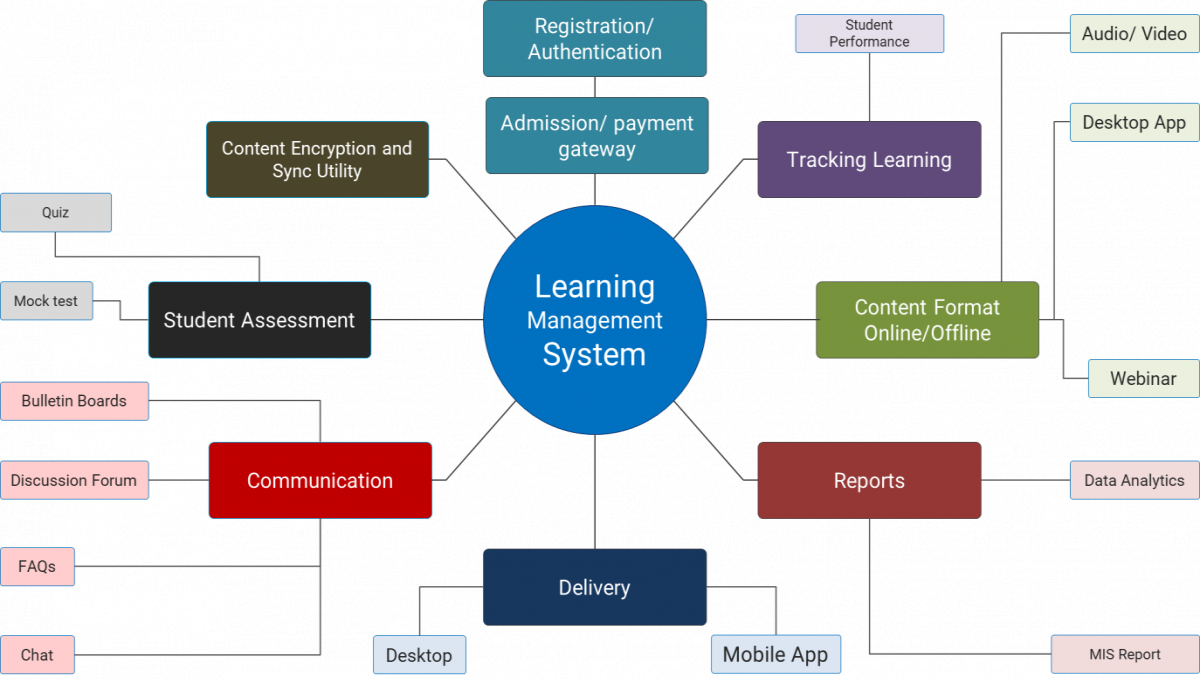Canvas Singapore: Streamline Your Online Learning with This Reliable Platform
Enhance Education With a Leading Discovering Management System
In the ever-evolving landscape of education, the adoption of a leading Learning Management System (LMS) presents a crucial possibility to improve processes and boost both training and discovering experiences. By automating management tasks and providing customized discovering paths, an effective LMS not only facilitates better engagement however additionally promotes an atmosphere conducive to cooperation and inclusivity.
Advantages of a Discovering Administration System
A Learning Management System (LMS) offers many benefits that can dramatically improve the educational experience for both students and educators. Mainly, an LMS facilitates structured program management, enabling instructors to take care of course products, track learner progression, and evaluate efficiency efficiently. This automation reduces the administrative problem on teachers, allowing them to concentrate extra on teaching and student interaction.
Additionally, LMS systems support personalized discovering paths, suiting varied learning styles and paces. This adaptability fosters an extra inclusive setting, allowing students to accessibility resources that best fit their requirements. Moreover, the accessibility of an LMS permits students to engage with program material anytime and anywhere, promoting self-directed learning and fitting numerous routines.
One more remarkable benefit is the improved cooperation opportunities an LMS offers. Conversation forums, team tasks, and peer assessments motivate interaction amongst students, boosting their understanding with shared viewpoints. In addition, the information analytics attributes of an LMS enable educators to obtain insights right into learner engagement and efficiency, notifying educational strategies and treatments.
Trick Attributes to Seek

Following, durable reporting and analytics capacities give beneficial understandings into student development and involvement, permitting instructors to make data-driven decisions. Combination with various other devices, such as material authoring software and communication systems, is additionally important for boosting performance and streamlining process.
Scalability is another essential function, guaranteeing that the LMS can expand alongside the organization's needs, suiting a boosting number of users and material. Additionally, mobile compatibility is essential in today's electronic landscape, allowing learners to access academic materials on various tools.
Lastly, solid protection procedures need to remain in location to secure delicate details and preserve conformity with educational laws. By focusing on these vital features, organizations can select an LMS that supports efficient teaching and finding out outcomes, ultimately boosting the instructional experience for all stakeholders included.

Enhancing Trainee Interaction
Student interaction is a critical consider the success of any type of curriculum, as it straight influences finding out results and retention rates. A durable Knowing Administration System (LMS) can play a pivotal function in boosting pupil involvement through numerous cutting-edge features.

Furthermore, individualized knowing courses permit trainees to progress at their own rate, catering to private knowing styles and preferences. go to my blog This flexibility not just fosters a feeling of ownership over their knowing journey but likewise maintains trainees invested and motivated.
Additionally, real-time responses devices make it possible for instructors to monitor trainee performance and give prompt support, further improving the discovering experience.
Implementation Techniques for Institutions
Effective implementation of a Learning Management System (LMS) needs establishments to take on a tactical technique that straightens modern technology with academic objectives. To accomplish this, establishments need to begin by conducting a complete demands evaluation to determine certain demands, making certain that the LMS will efficiently resolve obstacles encountered in training and understanding.
Following, appealing stakeholders-- professors, administrators, and trainees-- is important for promoting a culture of collaboration and assistance. Educating sessions need to be arranged to hop over to here equip customers with the essential abilities to take advantage of the LMS successfully. Furthermore, organizations should assign sufficient resources, consisting of time and budget plan, to help with a smooth transition and recurring upkeep.
Moreover, developing a phased rollout plan can help mitigate possible interruptions. Institutions can begin with pilot programs to check performance and collect responses before full-scale execution. Constant assessment and adjustment of the LMS based on user experience will certainly additionally improve its performance.
Last but not least, it is vital to interact a clear vision of how the LMS sustains pedagogical practices, thereby motivating buy-in from all events included. By complying with these approaches, organizations can guarantee an effective LMS execution that eventually enhances the academic experience.
Measuring Success and End Results
Gauging the success and outcomes of a Knowing Monitoring System (LMS) is essential for establishing its impact on teaching and discovering. This procedure includes the collection and analysis of quantitative and qualitative information to evaluate the effectiveness of the LMS in accomplishing academic objectives. Trick efficiency indicators (KPIs) such as trainee engagement rates, program completion rates, and evaluation ratings supply critical insights into user interaction and learning outcomes.
Additionally, surveys and feedback mechanisms can capture the experiences of both educators and trainees, providing useful viewpoints on use, web content importance, and general contentment. By triangulating these information resources, establishments can recognize toughness and locations for enhancement within the LMS framework.
Furthermore, aligning LMS metrics with institutional goals boosts accountability and sustains critical preparation (Canvas Singapore). For example, tracking retention rates and post-course web performance can inform educational program changes and resource allotment. Ultimately, an organized method to measuring success and end results not just makes sure continuous improvement of the LMS yet likewise fosters a culture of data-driven decision-making. This dedication to evaluation empowers schools to enhance their training methods and optimize student experiences successfully.
Verdict
The combination of a leading Learning Administration System (LMS) considerably boosts academic experiences by automating management tasks and giving personalized learning chances. By fostering collaboration and inclusivity, a reliable LMS not just enhances pupil interaction yet also drives far better knowing end results. Organizations have to focus on the option and implementation of an LMS that aligns with their objectives, making certain robust analytics and interactive content are used to measure success and continually enhance the educational atmosphere.
A Learning Management System (LMS) provides many benefits that can significantly enhance the educational experience for both learners and teachers.Furthermore, LMS systems sustain tailored learning paths, accommodating diverse knowing styles and paces.Measuring the success and outcomes of a Knowing Administration System (LMS) is vital for identifying its influence on training and discovering.The assimilation of a leading Understanding Management System (LMS) considerably enhances educational experiences by automating management jobs and providing personalized knowing chances. By promoting cooperation and inclusivity, a reliable LMS not just boosts trainee interaction but additionally drives much better knowing outcomes.